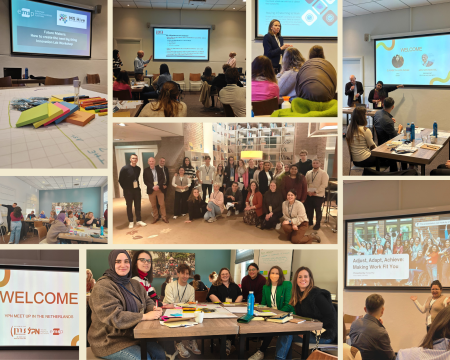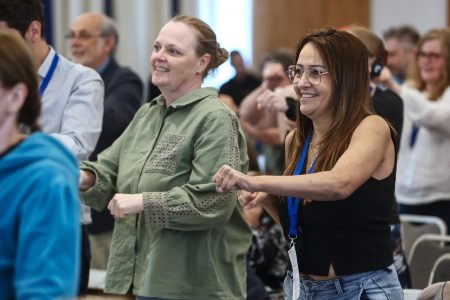Another highlight of EMSP Spring conference 2017: Interactive workshop on Real World Evidence Data
19.07.2017This workshop co-led by EMSP and MSIF experts brought together more than 60 participants, representing EMSP member organisations, industry partners, MS centres, the European Medicines Agency (online) and the Haute Autorité de Santé – the French HTA agency.
While the “golden standard” of patient data is traditionally generated within well-defined clinical trials as vital part of pre-authorisation work for new therapies, using an equally well-defined group of patients to be monitored within the trial, the so called “real world evidence” (RWE) data are generated in the patient journey after they left the “shelter” of their clinical trial or patients without clinical trial experiences. Those data are collected by patient registries and cohorts, on local, regional, national and sometimes even international level. They can be either drug specific or disease specific registries.
Although the value of patients’ and caregivers’ perspectives on healthcare is increasingly being recognized, its measurement and implementation presents a lasting challenge to researchers, clinicians, patients, regulators and payors.
From the patient (and EMSP’s) point of view, a new classification system is overdue, which would include patient- and caregiver-reported preferences, outcomes, experiences, and satisfaction related to healthcare and health outcomes, commonly being addressed by the terms PRO (Patient Reported Outcome – the data) or PROM (Patient Reported Outcome Measure – the scale).
As a very first step towards the expansion of the evidence base influencing health policy and healthcare decisions on both society and individual level, EMSP and partners have achieved a proof of concept for cross-border registry collaboration, which ultimately could lead to commonly used Core Outcome Sets being collected in registries all over Europe. EUReMS with its 13 national MS registries has also developed handling routine for temporary data sharing and data pooling for central analysis of these aggregated data.
In recent times, both regulators (EMA) and health technology assessment (HTA) agencies have shown a strong interest to add RWE data to their assessment of factors influencing their individual decisions, but to date no agreement on suitable RWE data measures have been made, at least not in Multiple Sclerosis.
Data collection is an important tool for advocacy! It is one way to make a point that cannot be disputed, see research as uniquely powerful advocacy tool.
To learn more, read the full report on the RWE data workshop
 Your Account
Your Account


